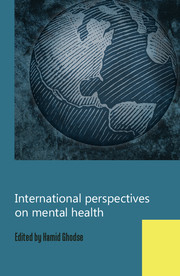Book contents
- Frontmatter
- Contents
- List of contributors
- Preface
- Africa
- Asia
- Australasia
- Europe
- Albania
- Austria
- Republic of Belarus
- Belgium
- Bosnia and Herzegovina
- Croatia
- Czech Republic
- Estonia
- Finland
- France
- Germany
- Greece
- Hungary
- Ireland
- Italy
- Lithuania
- Malta
- The Netherlands
- Norway
- Poland
- Portugal
- Romania
- Russian Federation
- Serbia
- Slovak Republic
- Slovenia
- Spain
- Sweden
- Switzerland
- Ukraine
- United Kingdom
- North America
- South America
- Index
Malta
from Europe
Published online by Cambridge University Press: 02 January 2018
- Frontmatter
- Contents
- List of contributors
- Preface
- Africa
- Asia
- Australasia
- Europe
- Albania
- Austria
- Republic of Belarus
- Belgium
- Bosnia and Herzegovina
- Croatia
- Czech Republic
- Estonia
- Finland
- France
- Germany
- Greece
- Hungary
- Ireland
- Italy
- Lithuania
- Malta
- The Netherlands
- Norway
- Poland
- Portugal
- Romania
- Russian Federation
- Serbia
- Slovak Republic
- Slovenia
- Spain
- Sweden
- Switzerland
- Ukraine
- United Kingdom
- North America
- South America
- Index
Summary
The Maltese Islands are located in the Mediterranean Sea and have a total area of 316 km2. They consist of three inhabited islands – Malta (the largest of the group), Gozo and Comino – and two uninhabited islands – Filfla and Cominotto. Malta is a democratic republic. Since its independence in 1964, Malta has played a more significant part in international relations. It became a member of the Commonwealth, the United Nations, the World Health Organization and several other organisations. In May 2004, Malta also became a member of the European Union.
The organisation and delivery of mental health services, and access to them, are influenced by Malta's sociocultural specifics. Most (98%) of the Maltese population is Catholic and the Church plays an influential role in Maltese society. It contributes to the Maltese perception of mental illness and its aetiology and consequences, as well as to the nature of presentation and the utilisation of services. It also affects the community support network and rehabilitation. The geographical proximity of the populace and the predominance of the extended family also play a significant role in the perception, nature and progression of mental illness.
Population
The population of the Maltese Islands in 2002 was recorded at 394 000. Since 1974, the population has grown linearly and in 2001 the natural population growth was estimated at 2.5 per 1000 population (World Health Organization, 2003). The total number of births in 2002 was 3805, giving a crude birth rate of 9.7 per 1000 population. In the same year, the total number of deaths was 3031, giving a crude death rate of 7.7 per 1000 population. The main causes of death among the Maltese population are non-communicable diseases, mainly circulatory disease and cancers. The life expectancy at birth in 2002 was 75.8 years for males and 80.5 years for females (National Statistics Office, 2003; Ministry of Health, 2004a).
The organisation of healthcare
The Maltese government provides a free national health service, for which the Minister of Health has overall responsibility. Residents receive comprehensive care, funded from general taxation (Ministry of Health, 2004b). The proportion of Malta's gross domestic product allocated to the health budget is 6.3%. Residents are not obliged to have health insurance in order to be entitled to health services, and those determined by meanstesting to have a ‘low income’ and those suffering from chronic conditions (e.g. schizophrenia) are entitled to free drug treatment.
- Type
- Chapter
- Information
- International Perspectives on Mental Health , pp. 348 - 352Publisher: Royal College of PsychiatristsPrint publication year: 2011



